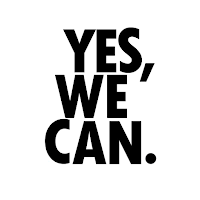Modal Verbs
CAN / COULD / BE ABLE TO
Can is a modal verb which only has a present form (can) and a past form (could). For all other tenses and forms, we use be able to + infinitive.
I can drive.
Mary can't come to class. She is ill.
When I was 7, I could swim.
They couldn't wait because they were in a hurry.
I have been able to swim since I was 7.
We will be able to practice our English in New York.
We use could for 'general ability' - to say that somebody could do something at any time, whenever s/he wanted. Was/were able to is also possible.
I could swim when I was 7.
I was able to swim when I was 7.
We do not normally used could to say that somebody managed to do something on one occasion. Instead, we use was/were able to.
I was able to get to the top of the mountain.
We use could for 'general ability' - to say that somebody could do something at any time, whenever s/he wanted. Was/were able to is also possible.
I could swim when I was 7.
I was able to swim when I was 7.
We do not normally used could to say that somebody managed to do something on one occasion. Instead, we use was/were able to.
I was able to get to the top of the mountain.
Have to and must are used to talk about obligations. Have to is more common for external obligations, whereas must is more common for personal obligations.
I have to wear a uniform.
I must study harder.
We use don't / doesn't have to when there is no obligation to do something and mustn't when something is prohibited. It is possible to use can't or not allowed to instead of mustn't.
He doesn't have to do my homework.
I mustn't park here / I can't park here / I'm not allowed to park here.
Had to + bare infinitive expresses past obligation or necessity.
The bus broke down so I had to walk.
Should / ought to is used to give advice or express an opinion about what is right and wrong.
It's raining. You should / ought to take an umbrella with you.
You shouldn't / ought not to drink so much Coke.
Her phone is switched off. She might be on the plane now.
I don't know where he is. He may be at work.
We use can't when we are sure something is impossible / not true.
That woman can't be his wife. His wife has dark hair.
We use must when we are sure something is true.
My neighbors must be out. There aren't any lights on in the house.
Modals - deduction (present)
For past situations we use the same modal verbs + have + past participle.
I can't find my book. I must have left it at university.
This essay is poor. You can't have spent long on it.
I think we may have taken the long road. This doesn't look familiar.
Sean looked sad. He might not have been feeling well.
We use should/ought to + have + participle to say that somebody didn't do the right thing, or to express regret or criticism.
You shouldn't have turned left at the traffic lights.
We use should/ought to + have + participle to say that somebody didn't do the right thing, or to express regret or criticism.
You shouldn't have turned left at the traffic lights.
Modals - deduction past
Be supposed to / Had better
Be supposed to is used to talk about what should be done because of a rule or because it is expected.
Come on, it's 10 o'clock. You're supposed to be in bed!
Had better + bare infinitive (infinitive without to) often implies a warning of possible negative consequences if the advice or precaution is not taken.
You'd better wear a coat. I don't want you to get a cold.
We'd better not eat it - it might be poisonous.
Let
Let is often used to express permission.
My parents don't let me watch that programme.
Let is not normally used in the passive. Be allowed to is used instead.
I'm not allowed to watch that programme.
Make
Make is used to express obligation.
The teacher made me do some extra homework.
Taylor Swift - Look What You Made Me Do
In the passive, make is followed by the infinitive with to.
I was made to do some extra homework.


Very nice explanation, thank you!
ReplyDelete